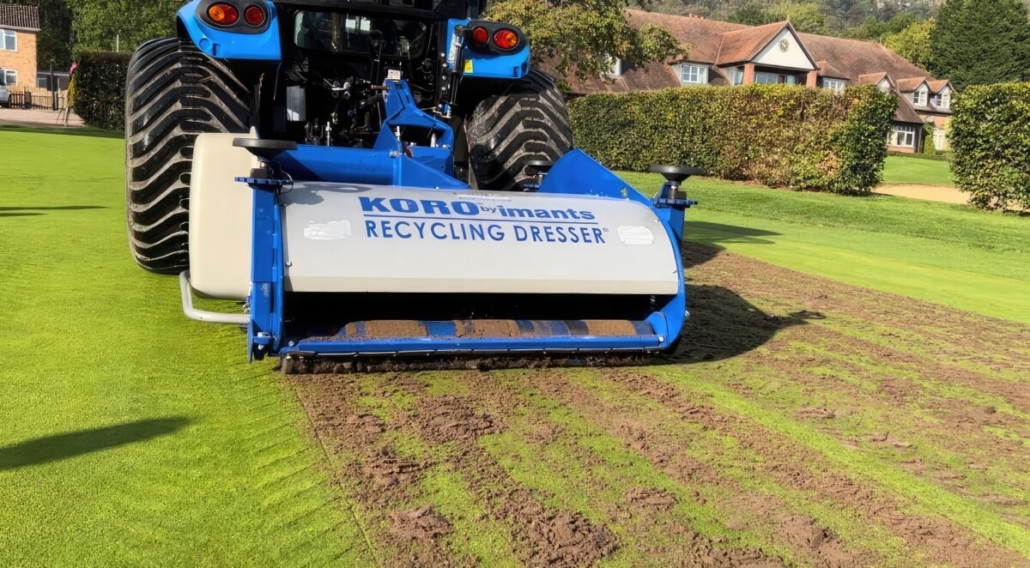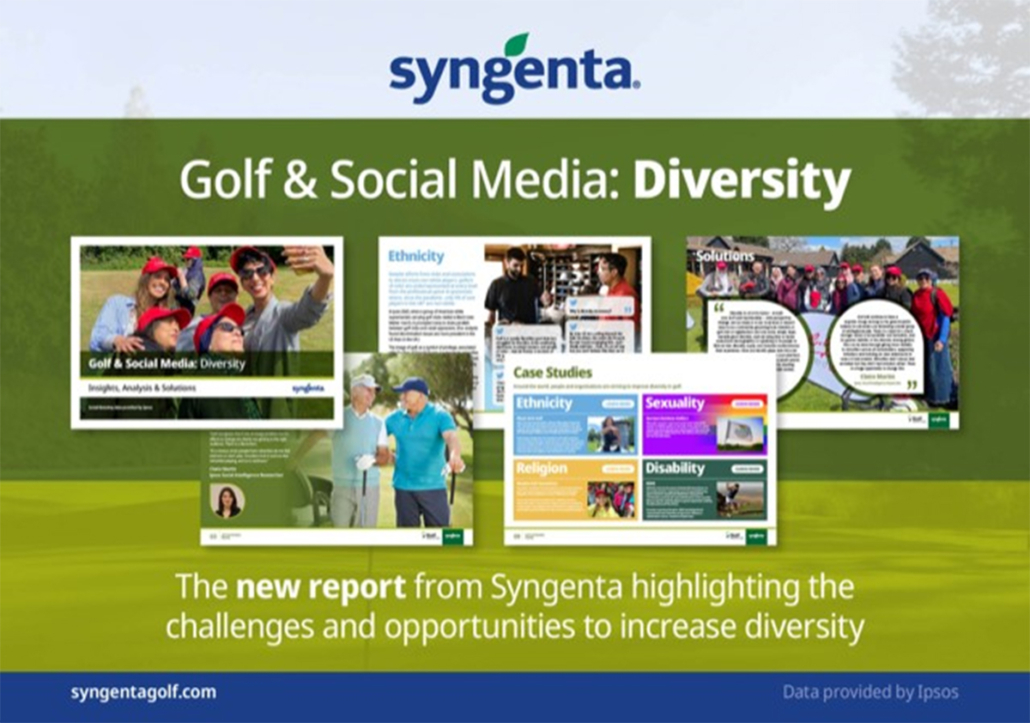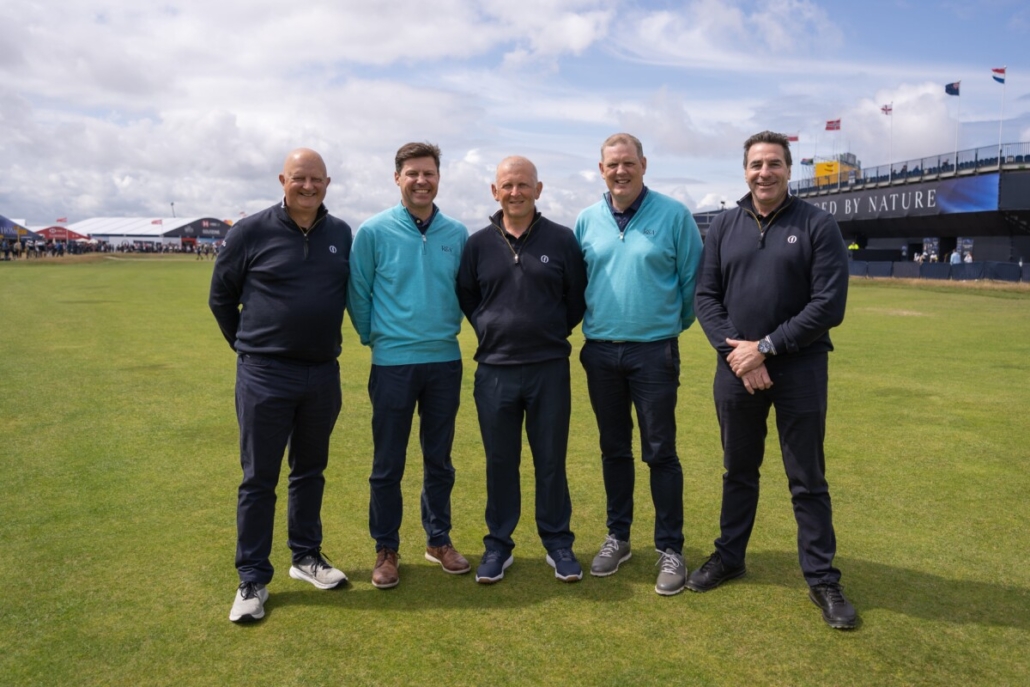Golfs sustainable topdressing method
Golfs sustainable topdressing method: Now more than ever, golf clubs are battling the rising cost of materials, with sand being one of the highest, but by using the Koro RECYCLINGDRESSER® from Campey Turf Care Systems, clubs can reapproach topdressing.
Whilst the Imants-made machine has traditionally been used on football pitches and larger areas, The Worcestershire Golf Club Course Manager, Steve Lloyd, thinks the process of the RECYCLINGDRESSER® could save up to £2.5k across an 18-hole course.

Golfs sustainable topdressing method
The RECYCLINGDRESSER® aerates the underlying soil vertically and horizontally, removing soil from the root zone and re-distributing it across the playing surface. Layering and compaction are eliminated, biological activity is increased, and existing fertilisers in the soil are better utilised. The RECYCLINGDRESSER® reduces the amount of new topdressing required, therefore saving labour and material costs and promoting sustainable maintenance.
The waste of material during hollow tining got Steve thinking about the machine, and after seeing it work on his USGA specification practice green, he sees a place for it in golf.
“If the cost of the material goes up substantially, then you start to question how much of it I need or if there is an alternative way that is more cost-effective, sustainable, and fits both boxes,” Steve said.
“If you hollow tine a lot, probably 80% of what you’re bringing out is good material. Where does that go? Most of the time, it gets thrown away, which is a waste, so I thought about how other sports reuse material, and that brought me to the RECYCLINGDRESSER®.
“The demo on our golf green by Jason Moody Product Specialist for Campey, went really well. It settled down within a week, and the recovery was really good. We followed up with our usual granular feed and a light top dress the following week to help restore surface levels, which is what we’d do on all the greens anyway.”
For Steve, the pressures on sand use will only continue to grow. The cost of raw materials and haulage are already becoming issues, and the demand from other industries, such as construction, means golf is down the pecking order.
With the RECYCLINGDRESSER®, he believes there are two approaches clubs could use that would bring sustainability and financial benefits.
“For me, there are two ways to do it,” Steve begins. “You can have half as much top dressing coming in because you’ll still need some topdressing, but it’ll mean instead of six loads a year, we might just have three, so we’ve ticked the box there by getting some fresh material in, but we have reduced our costs while utilising the existing material.
“The other way of looking at it is to carry on with the same number of loads but use the RECYCLINGDRESSER® to get more out. Therefore, you might be able to spread that material over a wider area, and with worm control, the more sand you can get on a golf course, the less impact there is from worm casts.
“That’s another element, so there are quite a few layers of this that can be seen as beneficial to golf clubs, especially inland golf courses.”
For the latest industry news visit turfmatters.co.uk/news
Get all of the big headlines, pictures, opinions and videos on stories that matter to you.
Follow us on Twitter and Instagram for fun, fresh and engaging content.
You can also find us on Facebook for more of your must-see news, features, videos and pictures from Turf Matters.

















